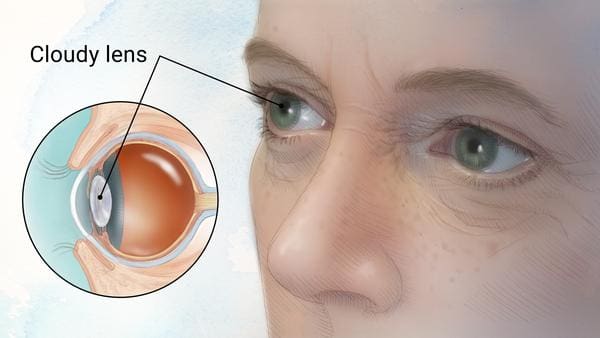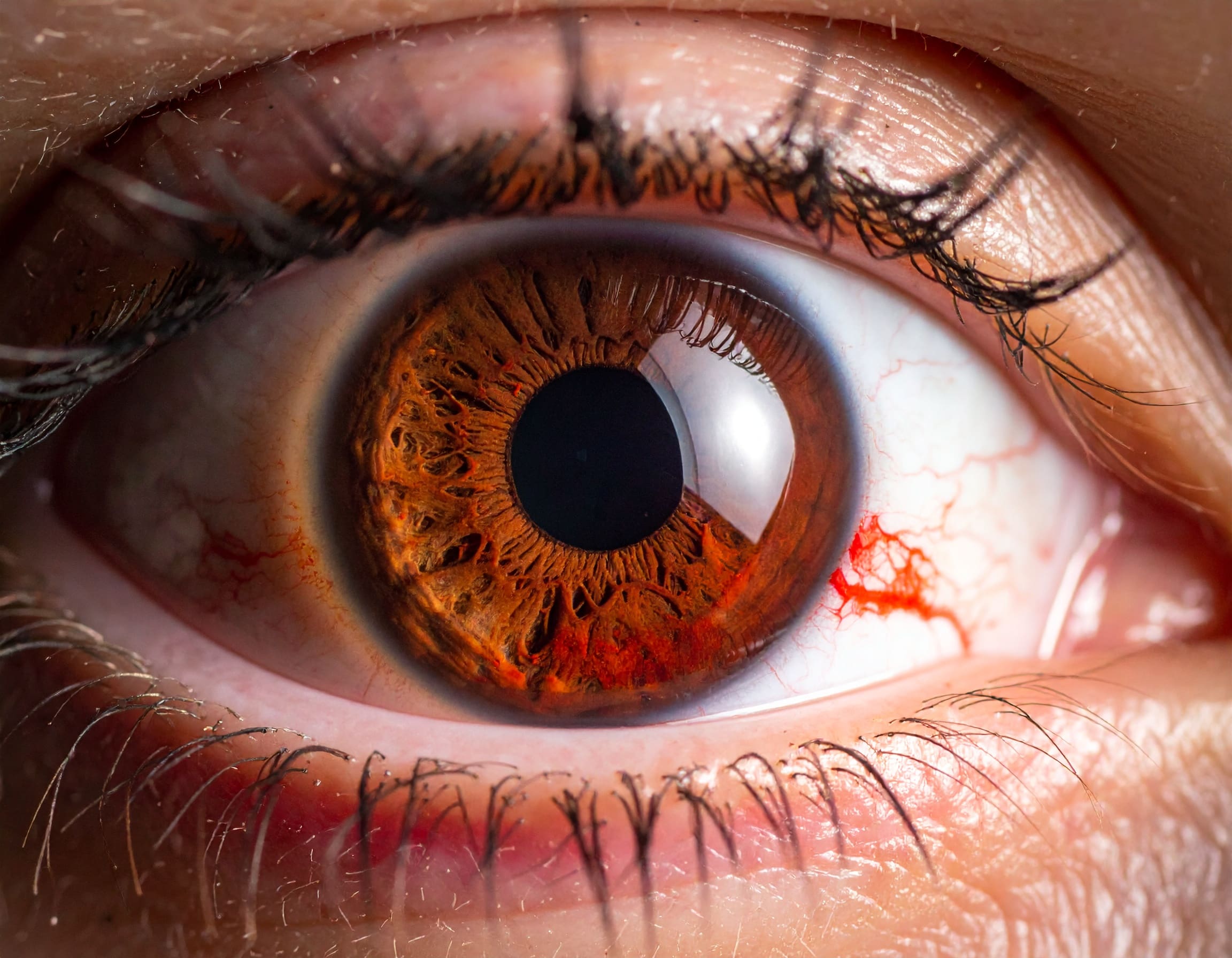A cataract is a cloudy area that forms in the lens of your eye. Cataracts can develop when proteins break down and clump together in your eye’s lens. Cataracts can eventually cause blurred vision and make it harder to see properly.
Cataract surgery is a common outpatient procedure that involves removing the lens of your eye and replacing it with an artificial intraocular lens (IOL), which functions just as your natural lens does.
According to the American Optometric Association, approximately 90 percent of patients report having better vision after having cataract surgery. But here’s something you must know about blurry vision after cataract surgery – what is normal and what is not.
The Foggy Window Phase
Picture this: You’ve just had your cataract surgery and are ready to return to crisp, clear vision. Yet, in the immediate aftermath, you observe your vision is less than clear. If you’re also squinting at this text and experiencing post-operative haze, you’re likely in the ‘Foggy Window Phase.’
It’s normal for your vision to be blurry as your eye recovers. Often, it results from the natural inflammatory response of your body. The blurred vision typically goes away within a few days. It takes time for your eyes to heal and to adjust to the new lens that has been implanted. The protective shield placed over your eye, combined with the residual impact of ointments and dilating drops used during surgery, gives you that foggy window vision.
Clarity Returns Gradually
As the days pass, you’ll notice that the visual fog starts clearing, offering vivid colors and sharp contours. Gradually, as the cornea clears and the swelling reduces, you start seeing better. It’s a process that can be compared to the morning mist slowly burning off under the warmth of the rising sun.
Patience Is The Key.
After the surgery, it’s crucial to be patient and follow your doctor’s instructions meticulously. Keep your eyes protected from potential irritants, use only the prescribed eye drops to diminish inflammation and infection, and be regular with follow-ups to monitor your progress. The ‘Foggy Window Phase’ is a temporary but necessary interval following any cataract surgery. By understanding what this phase entails, you can navigate your recovery with confidence, preparing for the moment the fog lifts, revealing the bright, sharp world around you.
What’s Not Normal?
After a cataract surgery, your eyes are like a camera with its lens replaced. So, the initial blur is akin to a lens adjusting to a new focus. It also feels like waking up to a frosted-over window on a winter morning. The road to recovery post-cataract surgery can have its fair share of upsides, but certain signs indicate a deviation from the norm.
· Persistent Blurry Vision
If your vision is still significantly blurred after the expected healing period (usually a few weeks), it’s crucial to consult your eye doctor. Usually, a sustained lack of clarity can happen because the IOL power doesn’t match your eye’s needs. Swelling in the cornea or edema can again affect your vision. Continuous blurry vision indicates an underlying issue requiring further medical assessment or treatment.
· Halos and Glare
Some patients report seeing halos and glare around lights, occurring more frequently at night or in dimly lit environments. This usually resolves within a few weeks to months as your eye heals and adapts. However, timely medical intervention can help with any severe consequences.
· Redness and Severe Pain
While some discomfort is normal, intense pain could indicate inflammation or infection. Your eye’s surface can also react adversely to the sutures or intraocular lens. Some discomfort is anticipated as your eye heals, but acute or worsening pain is a red flag. These are situations your eye surgeon should evaluate without delay.
· Vision Loss
Any noticeable loss of vision post-surgery warrants immediate medical attention. It is an urgent cry for help. This symptom can point towards complications like retinal detachment or swelling within the central retina (macular edema), requiring prompt intervention.
· Floaters and Flashes
A sudden shower of floaters or flashes of light could indicate a retinal tear or detachment, particularly if they appear as a swarm or curtain affecting your field of vision. It is not part of the expected visual effects post-surgery and must be treated as an emergency.
Factors That Affect Your Vision
Not everyone will recover from cataract surgery at the same pace. Some people may have clear vision within a day after having cataract surgery, while for others it may take several days for blurred vision to go away. If you still have blurry vision several weeks after your cataract surgery, follow up with your eye doctor to rule out potential complications.

If your blurred vision continues, it could be due to a variety of factors:
Inflammation
Inflammation is actually a healthy immune system response to the surgical removal of your eye lens. However, it can temporarily affect your vision and cause discomfort.
Inflammation should resolve with medication as your eye heals. You can expect an improvement in your vision within a few days of surgery. Doctors prescribe medication after surgery to help the healing process.
Contact your doctor if the inflammation continues to worsen following your surgery.
Dry Eyes
Dry eyes can be a common problem after cataract surgery. Having dry eyes can cause blurred vision.
According to a 2019 studyTrusted Source, cataract surgery can increase the risk of dry eyes due to:
- longer-term use of antibiotic-steroid eye drops before and after surgery
- the disruption of the tear film in the eye during surgery
- decreased production of lubricants and tears in the eye due to the surgical incision
This same study found that around 64 percent of the study participants experienced mild dry eyes after cataract surgery. However, some types of cataract surgery had a higher incidence of dry eyes than others.
One of the best ways to alleviate dry eye symptoms is to use over-the-counter (OTC) artificial tears. These are eye drops that help lubricate your eyes. When your eyes are lubricated, it can help alleviate blurred vision.
If you use artificial tears more than 6 times a day, or if you’re allergic to preservatives, use preservative-free eye drops instead.
Talk to your eye doctor if your dry eye symptoms don’t clear up, or if they get worse.
Posterior Capsular Opacification
Posterior capsular opacification (PCO) is also known as a “secondary cataract,” although it’s not actually a cataract. Instead, it’s an opaque film that can grow over the membrane that holds your new lens in place.
This film can cause your vision to become blurry or cloudy, much like the symptoms you experienced when you had cataracts.
PCO is fairly common after cataract surgery, and is thought to affect about 20 percent of patients.
The treatment for PCO involves a quick, painless procedure called YAG laser capsulotomy. It can be done at the ophthalmologist’s office and typically only takes about 5 minutes. This laser procedure is typically covered by insurance and Medicare.
Retinal Detachment
Retinal detachment occurs when the retina breaks away from the eye, causing obstructed, blurred, or shadowy vision. Some people also experience flashes of light or floating objects in their field of vision.
This complication is rare. A 2018 review suggests that it affects 0.7 percent of people who undergo cataract surgery. People who have additional eye conditions are at an increased risk.
Retinal detachment is serious. If left untreated, it can lead to permanent vision loss. Seek medical attention right away if you experience sudden changes in vision following cataract surgery.
Cystoid Macular Edema
After cataract surgery, the central retina (the macula) can become swollen, causing blurred and distorted vision. This condition is known as cystoid macular edema (CME).
CME affects up to 2 percent of cataract surgery patients. This condition, which can also cause swelling, usually appears around 6 to 8 weeks after surgery.
Treatment for CME typically includes non-steroidal anti-inflammatory (NSAID) eye drops. This condition most often resolves within a few months.
Ask Our Experts for Better Assistance
Our doctors are always willing to answer your questions ~~ every day of the week, except Sunday. There are 3 doctors here in our practice, 10 hours a day. On Sundays, they’re here for 5 hours. If you are concerned, make a call to our office. If your doctor is not onsite, one of the other docs will be happy to answer your questions. Call 763-420-5112.






